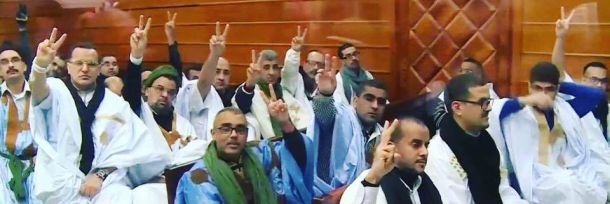
Western Sahara Resource Watch calls for immediate and unconditional release of the group of leading Saharawi activists who were arrested in 2010 for advocating for socio-economic rights of the Saharawi people.
In November 2020, a group of Saharawi political prisoners referred to as the Gdeim Izik group, will have spent 10 years in Moroccan jails. In anticipation of the upcoming tragic anniversary, WSRW calls for the immediate and unconditional release of these political prisoners.
In the early morning of 8 November 2010 – a week before the Arab spring would ignite - the Moroccan army and police brutally tore down a peaceful protest camp, where over 10,000 Saharawis had gathered in protest of their socio-economic exclusion in their own homeland that is under Moroccan occupation. The location of the camp was at a site called Gdeim Izik, a desert area outside of the capital city El Aaiún.
As the camp was burnt to the ground, fights erupted between police and frustrated Saharawis. Both police officers and civilian Saharawis died during the clashes. A group of 25 men was arrested over their supposed participation in the organisation of the protest camp. After two and a half years in arbitrary detention, they were sentenced in February 2013 in a Moroccan military court, most to sentences ranging between 20 years and lifetime.
Among the arrested were leading human rights defenders from Western Sahara. One of them is the secretary-general of a Saharawi group that monitors the foreign involvement in Morocco's illegal plunder of the territory.
The main piece of criminal evidence used against them consisted of confessions, signed under torture. The verdict rendered was appealed to the Moroccan Court of Cassation holding that the court could not condemn this group of activists solely on the basis of confessions. Four years later, in 2017, the case was therefore re-tried in front of a civilian court with the sentences being mostly upheld, and the confessions signed under torture being re-used as main criminal evidence. The case was therefore once again appealed to the Moroccan Court of Cassation which has not yet rendered a decision.
Today, 19 of the 25 are still in prison. Their trial was a travesty of justice. The only prove against the men were confessions given under torture. Here is a report on the Kafkaesque trial against the group. The report analyses the evidence and arguments used by the court.
“The breach of the international law on the right to a fair trial in the Universal Declaration of Human Rights and of Morocco's other international obligations renders the deprivation of liberty of the 19 detainees arbitrary. The 19 detainees were subjected to abductions or arrest involving torture or cruel, inhuman or degrading treatment or punishment. Their unlawful treatment has continued during their detention. The group has been detained for some seven years. Their conviction was not based on sufficient criminal material evidence,” former head of the UN Committee on Arbitrary detention, Mads Andenæs, stated in the foreword to the above report.
“These men have done nothing but peacefully advocate for their basic human rights. They have spent 10 years of their lives imprisoned based on trials that failed to follow the most basic international standards. We call on the international community to put pressure on Morocco for their immediate and unconditional release", says Sylvia Valentin, Chair of Western Sahara Resource Watch.
The arbitrary detainment of the Gdeim Izik prisoners was, amongst other, treated in a communication issued by the United Nations Special Procedures on 20 July 2017 (AL Mar 3/2017), signed by the United Nations Working Group on Arbitrary Detention, Special Rapporteur on Freedom of Expression, Special Rapporteur on Human Rights Defenders, Special Rapporteur on the Independence of Judges and Lawyers and the Special Rapporteur on Torture. The text stresses that the group of Saharawi human rights defenders had been arrested and detained in response to their freedom of expression and freedom of assembly in the Gdeim Izik camp.
Here are the Gdeim Izik prisoners, one by one:
Sidahmed Lemjeyid
Born: 1959
Sentenced to life by the Court of Appeal in Salé in 2017
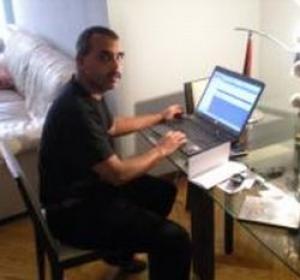
Sidahmed Lemjeyid was born on the first of March 1959 in Smara, Western Sahara, which at the time was still a Spanish colony. He was 16 years old when Morocco invaded his country. Before being imprisoned, Sidahmed lived in El Aaiún. He is not married and has no children.
Sidahmed dedicates all his time to the Saharawi cause. He is the President of CSPRON, the Committee for the Protection of Natural Resources in Western Sahara - an organisation that reports on the plundering of Western Sahara's abundant natural resources by Morocco.
Like many Saharawis, Sidahmed has paid a heavy price for speaking out against the Moroccan colonial power. He was arrested and jailed in 1999 for having participated in large protests in El Aaiún. He was arrested several times in 2005 and jailed for a few months, again for taking part in massive pro-independence demonstrations.
In relation to Gdeim Izik, he was arrested by plain-clothed Moroccan policemen in El Aaiún on 25 December 2010. He was taken to an unknown location where he was interrogated under torture and forced to sign a pre-written confession, that he was never allowed to read.
Lemjeiyd was condemned to life in prison in 2017 by an extraterritorial court; and was found guilty of participation to murder and of murdering public officials in their line of duty, with intent to kill. Lemjeiyd was found guilty in the absence of criminal evidence, as the main piece of evidence against him were the police records signed under torture, supported by the testimonies from the police men which wrote the now mentioned reports, and witnesses that Lemjeyid urges are declaring falsified testimonies. No one had ever heard about the aforementioned witnesses before they were presented in front of the court in 2017. During the proceedings held, Lemjeyid declared to the Court of Appeal that he had nothing to do with the camp, and that he had only visited the Gdeim Izik as a human rights activist, where he had interviewed people about their demands and their sufferance. He declared that all the statements were falsified, and that he had nothing to do with them; he was only accused because of his human rights activism.
Enaama Asfari
Born: 1970
Sentenced to 30 years by the Appeal Court in Salé in 2017.
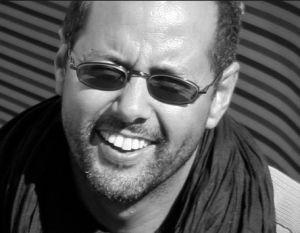
Enaama Asfari was born to a Saharawi family in 1970 in Tan Tan, a town in the south of Morocco. Enaama’s family was torn apart when the war over Western Sahara broke out in 1975. In that same year, the Moroccan authorities imprisoned his father, a known Saharawi militant. Enaama was only a 5-year-old boy at the time. He would not see his father again until 1991, when Enaama was 21. His mother had died while his father was in jail.
In his late twenties, holding a degree in international law and economics, Enaama moved to Paris to pursue a master in international relations. Not forgetting the plight of his people, he founded the Committee for the Defence of Human Rights in Western Sahara (CORELSO) with his French wife.
Enaama’s activism would lead to arrests whenever he’d go back to visit his family, that had relocated to El Aaiún, the capital of Western Sahara. He’s been arrested 6 times over the past 7 years. In 2009, he was thrown in prison for 4 months over holding a keychain that depicted the Saharawi flag.
Enaama was arrested on 7 November 2010, on the eve of the dismantlement of the Gdeim Izik camp. He was visiting a friend in El Aaiún, when the Moroccan secret police came for him. He was taken to an unknown location where he held blindfolded and handcuffed.
The Committee against Torture (CAT) found in a decision related to Enaama, dated 12 December 2016, that Morocco was in violation of multiple articles listed in the Convention against torture. Including torture during arrest and interrogation (art.1); failure to investigate (art.12); violation of the right to complain (art.13); obligation to compensate and reparation (art.14); usage of confessions obtained through torture (art. 15); and inhuman treatment in detention (art. 16). As such, the decision clearly states that Eênama Asfari has suffered under violent torture, and that the government has refrained from investigating this.
On the 19th of July, Asfari was sentenced to 30 years in prison, condemned for participation to murder of public officials in their line of duty, with the intent to kill. The prosecutor in the Appeal Court of Salé described Asfari as the leader of the Gdeim Izik camp, described by the Moroccan state as a military camp. The main evidence against Enaama was the police records (confessions), and the confessions is the sole piece of evidence proving that Enaama in fact was in the Gdeim Izik camp when it was dismantled; contrary to what Eenaama himself and two support witnesses states; that he was arrested on 7 November 2010.
Ahmed Sbai
Born: 1978
Sentenced to life imprisonment by the Appeal Court in Salé in 2017.
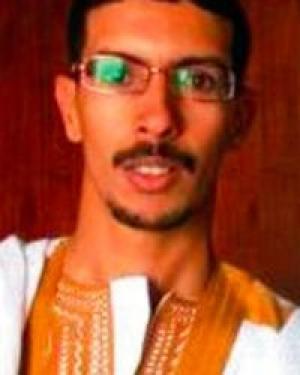
Ahmed Sbaai was born in El Aaiún, the capital of occupied Western Sahara, in 1971. Sbaai says the roots for his human rights activism can be traced back to early childhood, when he felt that he and his Saharawi friends were discriminated by Moroccan teachers in the schools.
Sbaai became active in 1999, during the so-called Saharawi Intifada. As he has stated himself: "Our principals were that the intifada would be peaceful, we made national flags and hung them in Moroccan institutions, we also held two minute demonstrations with flags and shouting slogans before dispersing before the police could take us. It was important for the Saharawi people to know some brave men were prepared to fight."
After having organised big demonstrations in El Aaiún in 2002, thereby disrupting the elections that year, the Moroccan authorities arrested Sbaai. He was sentenced to ten years, but was released in 2004, after having spent a year and three months in the notorious black prison in El Aaiún.
Upon his release, Sbaai founded the Saharawi League for the Protection of Political Prisoners inside Moroccan Jails. He was arrested again in 2006 and sentenced to a year and half in prison, accused of being a member of an illegal organisation. Since his releace, he's not had a moment of peace.
"Since my release I have continued my work, I am harassed daily, my passport has been confiscated, even today two human rights observers were removed from my home. Sometimes I feel I was more safe inside prison than outside, at least inside there are guards but outside they [Morocco] could hire someone to kill me", Sbaai has said in the past.
Sbaai was arrested by the Moroccan police on 8 November 2010, in the Lirak neighbourhood, El Aaiún. He says he was not physically tortured, but was beaten and intimidated during his interrogation. He claims to have been kept blindfolded and handcuffed until he was referred to the military court of Rabat.
On the 19th of July, Sbaai was condemned to life imprisonment by the Court of Appeal in Salé. Sbaai was condemned for the forming of a criminal organization and murdering a public officials in their line of duty, with the intent to kill. The main piece of evidence proving the act committed by Sbaai is the police records; confessions signed under torture, that Sbaai himself urges is falsified against him. Sbaai declared in the Court of Appeal that the Gdeim Izik camp was dismantled by the military forces, and that the clashes that occurred was a consequence of the violent dismantlement of the peaceful protest camp, that consisted of women, children and elderly.
Checikh Banga
Born: 1989
Sentenced to 30 years by the Appeal Court in Salé in 2017.
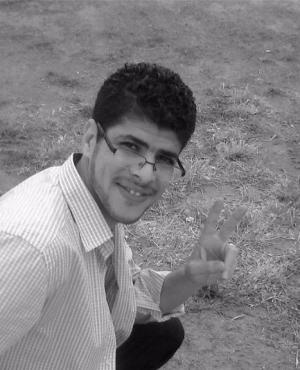
Cheikh Lkouri Bouzid Banga was born and raised in Assa, south of Morocco – home to a large Saharawi population that fled to the north when Morocco invaded Western Sahara. Cheikh grew up in a warm family, with his 2 brothers and 5 sisters.
Having a mind for books, Cheikh did well at school, but had to drop out due to repeated incarcerations. The Moroccan authorities prohibited him from continuing his studies after his release from prison. In spite thereof, he’s pursuing his bachelor degree in law from behind bars. Ever the avid reader, he’s particularly fond of the work of Noam Chomsky.
Cheikh is the youngest Saharawi prisoner of conscience. He’s been arrested many times for his advocacy for the Saharawi’s right to self-determination. He’s a member of CODESA, President of the Saharawi Committee for Human Rights in Assa and a member of Assa’s local chapter of AMDH (Moroccan Association for Human Rights). At the age of 17, in 2006, he spent 5 months in Anzigane jail. Barely released, he was arrested again in El Aaiún in October 2006 and sentenced to 6 months.
He was arrested on 8 November 2010 on the Gdeim Izik camp site. He had only just arrived on the scene bringing medicine for his aunt, who had pitched her tent in the protest camp. Cheikh was tortured by the Moroccan police and forced to sign a confession he had not been able to read in advance.
Banga was condemned to 30 years in prison by the Court of Appeal in Salé and found guilty of participation to murder of public officials in their line of duty, with intent to kill. The main piece of evidence proving the act committed by Banga is the police records (confessions), that Banga himself declare are falsified and signed under torture. Banga declared during the proceedings held in the Court of Appeal in Salé that the Moroccan public forces attacked the inhabitants of the camp whilst they were sleeping, and that he had been assaulted and abducted in his tent on 8 November.
El Bachir Khadda
Born: 1986
Sentenced to 20 years by the Appeal Court in Salé in 2017
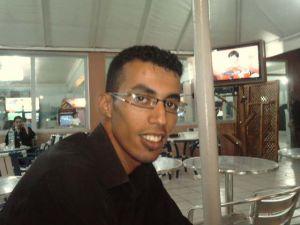
Bachir Elaabed Elmhtar El Khadda was born on 26 October 1986 in a Saharawi family living in Tan Tan, a town in the south of Morocco, close to the Western Sahara border. He went on to live in El Aaiún, the capital of Western Sahara.
Bachir is a member of the Saharawi Observatory for Human Rights in Western Sahara. When he was 21, he was arrested and thrown in prison to serve a ten-month prison sentence for having participated in a Saharawi pro-independence demonstration. He finished his A-levels while in prison.
On 5 December 2010, Bachir was arrested in café Las Dunas in El Aaiún, where he was enjoying tea with Hassan Dah and Mohamed Tahlil. All three men were taken to the police station. Khadda says not to have been tortured, but says he was blindfolded and handcuffed throughout his detention.
Khadda was condemned to 20 years in prison by the Court of Appeal in Salé, and found guilty of participation to murder of public officials in their line of duty, with intent to kill. Khadda declared that he was not present in the camp on the morning of the 8th of November, and urged that he did not commit the crimes accused of; and that the police records used as evidence against him was falsified and signed under torture. During his declarations to the Appeal Court of Salé, Khadda invoked the fourth Geneva Convention, and declared that a Moroccan courthouse had no competence to judge him. The main piece of evidence proving and describing the acts committed by Khadda is the said police records. Bachir is currently studying to obtain a law degree from behind bars.
Mohamed Tahlil
Born: 1981
Sentenced to 20 years by the Appeal Court in Salé in 2017.
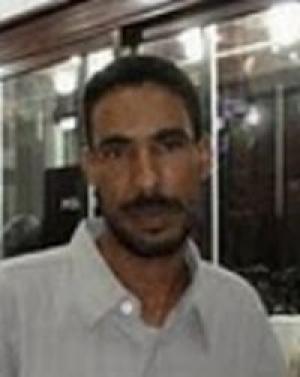
Mohamed Tahlil was born in 1981 in Guelta Zemour, Western Sahara. He is currently registered as an inhabitant of Boujdour, where he lives alone.
Tahlil is the president of the Boujdour section of ASVDH - the Saharawi Association of Victims of Grave Human Rights Violations Committed by the Moroccan State. He's been imprisoned for his political stance in 2005 and 2007. On both occasions, he'd been sentenced to three years in jail, but released after a year and a half. Tahlil is the president of the Boujdour section of ASVDH - the Saharawi Association of Victims of Grave Human Rights Violations Committed by the Moroccan State.
Tahlil was arrested together with Bachir El Khadda and Hassan Dah on 5 December 2010, while they were having tea in café Las Dunas in El Aaiún. Tahili says that he has not been subjected to torture, but did experience psychological abuse during his interrogation when he was blindfolded and handcuffed.
Tahlil was sentenced to 20 years by the Court of Appeal in Salé, and found guilty of participation to murder of public officials in their line of duty, with intent to kill. Thalil declared himself innocent of all charges, and denounced that the only reason for his imprisonment was his political opinions. Thalil urged that he was not present in the camp during the early hours on the 8th of November. The only piece of evidence proving that Thalil was present in the camp during the early hours in the 8th of November is the police records which all accused urge are falsified and signed under torture.
Hassan Eddah (Dah)
Born 1987
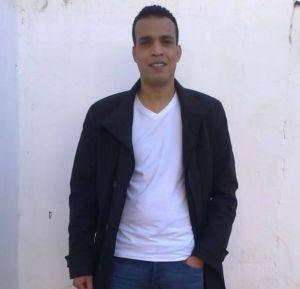
Sentenced to 25 years (originally sentenced to 30 years by Military Court in 2013, reduced to 25 years in 2017 2017 by the Appeal Court)
Hassan Dah was born on 18 January 1987 in El Aaiún, where he grew up in the Maatala neighbourhood - home to many Saharawis who still live in the occupied capital of Western Sahara.
Hassan is a human rights defender and connected to the Saharawi Observatory for Human Rights in Western Sahara. In 2007, he spent 10 months in prison for his political views. He finished his A-levels behind bars.
The Moroccan police arrested Hassan Dah, Mohamed Tahlil and Bachir El Khadda on 5 December 2010 in café Las Dunas in El Aaiún. Hassan says he's been physically and psychologically tortured, kept blindfolded and handcuffed, has been raped with a baton, has had cold water and urine poured on him, in addition to various other human rights violations.
Hassan Dah took part in the Gdeim Izik camp, where he acted as a correspondent for the Frente Polisario's TV and radio service - something the Moroccan court held against him when charging him with undermining state security.
The Appeal Court of Salé condemned Hassan Dah to 25 years in prison on the 19th of July in a blatant absence of material evidence. Hassan was found guilty of participation to murder of public officials in their line of duty, with intent to kill
Hassan described to the court how he on the 7th of November had witnessed a caravan, bringing food and medicine in to the camp, being stopped by the military forces. Hassan described that the had observed the assault on the caravan as a human rights activist, and described how the camp was placed under a siege on the 7th of November, and that the military forces prevented people from leaving and entering the camp. Hassan declared that he was in El Aaiún on the 8th of November, and he declared himself innocent of all charges; declaring that the only reason for his imprisonment was his political beliefs that the people of Western Sahara is entitled to a referendum on self-determination. The main piece of evidence proving that Hassan Dah was in the camp in the 8th of November when the camp was violently dismantled by the Moroccan military forces are police records that Hassan himself declare are falsified against him and signed under torture.
Mohamed Lamin Haddi
Born: 1980
Sentenced to 25 years by the Appeal Court in Salé in 2017.
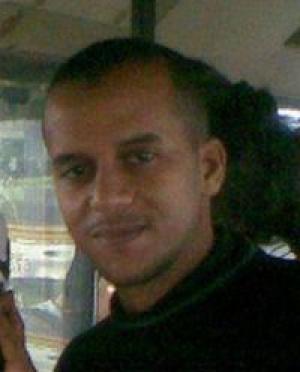
Mohamed Lamin Haddi was born in 1984 in El Aaiún, Western Sahara.
He was arrested by Moroccan secret service on 20 November 2010 in El Aaiún. He claims not to have been tortured, though he says he was subjected to human rights violations while being blindfolded, handcuffed and deprived from food.
It is believed that his arrest was linked to the assistance he had offered to two Belgian doctors, Marie-Jeanne Wuidat and Ann Collier, who were on a humanitarian mission in the occupied territories to provide medical assistance to Saharawi victims of Morocco’s repression in the Gdeim Izik camp. In the aftermath of the camp's dismantlement, many Saharawi were refused help by the Moroccan staff in the hospital of El Aaiún. The Belgian doctors were expelled from El Aaiún.
Mohammed Lamin Haddi declared in the Court of Appeal in Salé that he was in El Aauin on the 8th of November, and witnessed the protests that emerged after the violent dismantlement of the camp. Haddi declared that he witnesses civilians being beaten in the streets, women being raped, and witnessed the military forces assault people in the streets. Haddi declared that two of his friends died that day.
Haddi was sentenced to 25 years by the Court of Appeal, and found guilty of participation to murder of public officials in their line of duty, with intent to kill. Haddi urged that the only reason for his imprisonment was his human rights activism, and urged that he was innocent of all charges. The only piece of evidence proving or describing the alleged acts committed by Haddi, or even his presence in the camp, are police records that Haddi urges are falsified against him and signed under torture.
Abdallahi Lakfawni
Born: 1974
Sentenced to life by the Appeal Court in Salé in 2017.
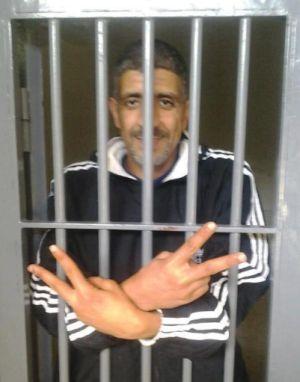
Abdallahi Lakfawni was born in El Aaiún, Western Sahara, in 1974.
Abdallahi took part in the Gdeim Izik camp and contributed to keep the camp as organised as possible. On 5 November 2010, the wali (governor) of El Aaiún wanted to enter the camp, but was turned back by Lakfawni - an incident which is said to have been the main reason behind his arrest and conviction.
Abdallahi arrested on 12 November 2010 at Playa de Foum El Oued, 25 kilometres southwest of El Aaiún.
Abdallahi Lakfawni claims to have been subjected to different types of torture which lead to loss of consciousness during his detention; he was forced to undress, raped with a baton, burnt with cigarettes on his body, subjected to fake strangulation, ‘the plane’ and ‘grilled chicken’, and urine was poured over his body. Abdallahi was blindfolded while this horrific maltreatment was ongoing, and says to have been deprived of sleep and food.
Lakfawni was sentenced to life imprisonment by the Court of Appeal in Salé, in the absence of criminal evidence. Lakfawni was found guilty of the forming of a criminal organization, and guilty of the murder of public officials with the intent to kill. Lakfawni declared that he was present in the camp during the dismantlement, and explained how the Gdeim Izik camp was controlled with an “iron hand”, and how the camp was surrounded by military personnel, surrounded by a wall, with only one entrance. The military had made 7 checkpoints for us to enter the camp, Lakfawni declared. He told how he was asleep when the military forces attacked the camp, and that it was like an earthquake – it was chaos – people were running, and they screamed. He told how women and children passed out due to the teargas. Everyone walked back to the city. He stated: “If Morocco had wanted us to know the truth, we would have had the truth; but they have buried it”.
Lakfawni declared himself innocent of all charges, and urged that the police records, the main piece of evidence proving the actions of Lakfawni, was falsified against him and signed under torture.
Abdallahi Toubali
Born: 1980
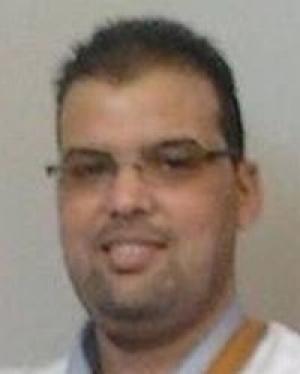
Originally sentenced to 25 years by Military Court in 2013, reduced to 20 years in 2017.
Abdallahi Toubali was born on 24 March 1980 in El Aaiún - the capital city of occupied Western Sahara.
Abdallahi took part in the Gdeim Izik camp, and was a member of the Dialogue Committee, which attempted to negotiate with the Moroccan authorities to assure more respect for the social and economic grievances of the camp's residents.
Abdallahi was run over by a police SUV on 7 November 2010 - the eve of the camp's dismantlement. He was taken to the hospital of El Aaiún, but was refused medical assistance. Thanks to an intervention by Gachmoula Mint Ubbi - a Saharawi defector who has been elected into the Moroccan parliament - Abdallahi was taken in for first care in the military hospital. He was allowed to go home on 2 am of 8 November 2010. At 9 am, Gachmoula came by to visit him.
Abdallahi was arrested on 2 December 2010, accused of having murdered a Moroccan police man in Gdeim Izik on 8 November - when he was in fact at home, recovering from being hit by an SUV, in the company of an elected parliamentarian.
While in detention, Abdallahi was subjected to torture; he was raped with a baton and had urine and cold water poured on his body, all the while being blindfolded, hand-cuffed, naked and subjected to insults and beatings.
Toubali was sentenced to 20 years by the Court of Appeal in Salé on the 19th of July, condemned for participation to murder, with intent to kill. During the hearings, Toubali repeatedly asked that Gachmoula Mint Ubbi be heard as a witness - a request denied by the judge. Toubali urged that he could not have committed the actions he was accused of, as he was lying in bed at home in a critical condition, recovering from a car accident. Toubali declared that the sole reason for his arrest, was his role in the Dialouge Committee, and he explained how the dialogue committee had reached an agreement with the Moroccan authorities on the 6th of November. Toubali explained that the government was supposed to the come to the camp site on the 8th of November with tents, and register the protesters in order to meet their demands. The Moroccan authorities did not keep their promise, but attacked the camp in the early hour, whilst the inhabitants were sleeping. The main piece of evidence proving the presence of Toubail in the camp is the police records, which Toubali urges are falsified against him.
El Houssin Ezzaoui
Born: 1975
Sentenced to 25 years by the Appeal Court in Salé in 2017.
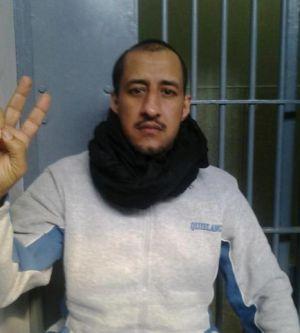
El Houssin Ezzaoui was born on 10 October 1975 to the family of Fatma El Hussein and Boujema El Mahjoub, in El Aaiún, Western Sahara. El Houssin still lives in El Aaiún with his wife and two young children. Possessing a Spanish residence permit, El Houssin would spend a few months a year in Spain to earn a living as a seasonal worker.
El Houssin took part in the Gdeim Izik camp, and was a member of the Dialogue Committee - a delegation of camp residents which engaged in talks with the Moroccan government to obtain better social and economic living conditions for the Saharawi population in occupied Western Sahara.
He was arrested shortly after midnight on 2 December 2010 at the house of his wife's brother, Mohamed Al Saadi, in the Al Amal neighbourhood of El Aaiún. Before being interrogated, Ezzaoui says to have been treated aggressively.
Ezzaoui says to have been subjected to various forms of physical and psychological torture while in detention. After he'd been stripped from his clothes, he was raped by the use of a baton, and urine and cold water were poured on his body. All the time he spent in the police offide, he was blindfolded and handcuffed, subjected to innumerable insults and kicks, deprived of sleep, food and water.
Ezzaoui was by the Court of Appeal in Salé on the 19th of July condemned to 25 years in prison, found guilty of participation to murder of public officials in their line of duty, with intent to kill. Ezzaoui explained to the Court how he on the morning of the 8th of November had passed out due to the teargas released by the public forces. He explained how he woke up the next day at the hospital, not able to remember anything from the dismantlement of the camp. Ezzaoui urged that he had not done any of the actions he was accused of, and urged that he was only imprisoned due to this political opinions and his role in the dialogue committee. Ezzaoui was condemned in the absence of criminal evidence, as the main piece of evidence proving the acts committed was the police records, which Ezzaoui declared was falsified against him and signed under torture.
Mohamed Bourial
Born: 1976
Sentenced to 30 years by the Appeal Court in Salé in 2017.
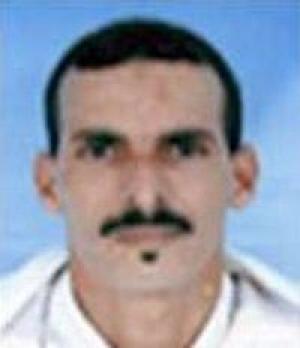
Mohamed Bourial was born in 1970, in El Aaiún - the capital of the "Spanish Sahara", as Western Sahara was known under Spanish colonial reign. It would be another 5 years before Morocco took over the role of colonial power in the territory.
Mohamed Bourial is married and has 2 sons. His family lives in El Aaiún. Mohamed tried to make ends meet and occasionally finds a paid, short-term job, but has no steady employment or income.
Tired of the hopeless situation in which many Saharawi are forced to live under Moroccan occupation, Mohamed and his family set up their tent in the Gdeim Izik camp. Mohamed became a member of the so-called Dialogue Committee; a group of camp representatives that regularly met and negotiated with the Moroccan authorities to try and assure better living conditions for the Saharawi people in their own homeland.
He was arrested by the Moroccan army on 8 November 2010 on the camp site. He was taken to the army's headquarters in El Aaiún. There, he spent five days blindfolded, naked and undergoing brutal beatings with a steel cable.
Mohamed Bourial sentenced to 30 years by the Appeal Court in Salé in 2017, found guilty of participation to murder of public officials in their line of duty, with intent to kill.
Bourial acted as the head of the dialogue committee, and explained to the Court of Appeal how the dialogue committee and the government had reached an agreement two days in advance. The minister of infrastructure was expected to appear at the camp site with 9 tents to organize a counting of the population in the camp, so the government could be able to meet the social demands placed forward by the inhabitant. The government didn’t keep their promise, and the inhabitant in the camp was surprised by their attack; which took place 6 o'clock in the early hours on the 8th of November. Bourial declared to the court that
“The Gdeim Izik camp revealed the politics of the Morocco occupier, and how they marginalize the people of Western Sahara, and steal our resources. The Gdeim Izik camp is a product of the marginalization of all Saharawis and of Morocco’s occupation of Western Sahara. The camp lasted 28 days. There was no crime. No violence. Morocco attacked on the 8th of November women, children, elderly and men.”
Bourial declared in the Court of Appeal that he was innocent on all charges, and urged that the police records are falsified, and that he did not know the content of them until he was tried in the Military Court of Rabat in 2013. The said police records are the main piece of evidence proving the acts committed by Bourial, and was according to Bourial falsified and signed under torture.
Laaroussi Abdeljalil
Born: 1978
Sentenced to life by the Appeal Court in Salé in 2017.
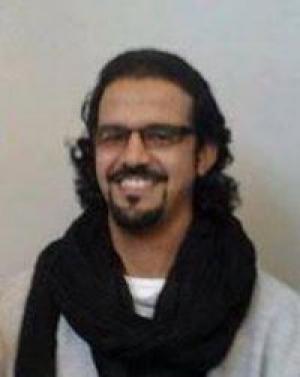
Sidi Laaroussi Abdeljalil was born in El Aaiún in 1978, to Kamel Mohamed and Monina Cori. His parents nowadays live in Boujdour, about 170 kilometres further south, but Laaroussi stayed in El Aaiún where he raised a family of his own; he is the father of two young children. With her husband and provider gone, Laaroussi's wife has taken their children and moved back in with her parents.
Life hasn't been easy for Laaroussi, who as the breadwinner of his family struggled to find steady employment. Like thousands of other Saharawis, it was the social and economic marginalisation that drove him to the Gdeim Izik camp.
On 13 November 2010, 5 days after the camp had been burned down by the Moroccan army, Laaroussi was arrested in his parents' house in Boujdour. He was taken to the police station in El Aaiún where he was subjected to grave human rights violations during his detention. He spent four days naked, blindfolded and handcuffed, he was tortured, electro-shocked and threatened with rape. The police threatened to bring his wife to the police station and rape her before Laaroussi's very eyes.
The maltreatment has had its effects: Laaroussi still has difficulty walking due to loss of balance. During the visit of the UN committee on Arbitrary detention in 2013, Laroussi was separated from the rest of the group and placed with the common criminals.
Laroussi was sentenced to life in prison by the Court of Appeal on the 19th of July, and found guilty of the forming of a criminal organization and murder of public officials in the line of duty, with intent to kill. The prosecutor claimed that Laroussi oversaw the security forces in the Gdeim Izik camp, which according to the prosecutor was a military camp, aiming to destabilize the region.
Laroussi declared to the court that he visited the camp Gdeim Izik twice, where he visited his aunt. On the 7th of November 2010 Laaroussi was in Bojador to take care of his sick mother, and Laroussi declared that he stayed in Bojador until the 12th of November, when he was arrested by public servants which broke into his cousin’s house. The main piece of evidence against Laroussi is the police records, which entail confessions signed under torture. All the accused urges that the police records are falsified against them, and that the Moroccan government is covering up the truth about how they in the early hours on the 8th of November attacked thousands of civilians whilst they were sleeping.
Mohamed El Bachir Boutinguiza
Born 1974
Sentenced to life by the Appeal Court in Salé in 2017.
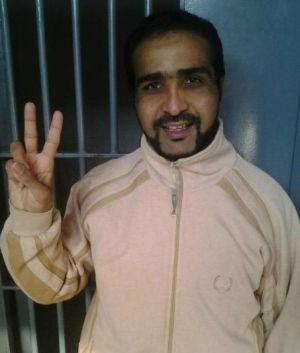
Mohamed El Bachir Boutinguiza was born in El Aaiún in 1974. His mother Mailemenin, who traveled hundreds of miles from El Aaiún to Salé to be able to see her son twice a week in prison, remembers his birthyear as the year before the Moroccans invaded Western Sahara. Mohamed is not married and has no children. Since he has a Spanish residence permit, he spends a few months a year in Spain to earn a living as a seasonal worker. Work in Western Sahara is hard to come by for a majority of Saharawis, due to the preferential treatment of Moroccan settlers. The seasonal work abroad allows Mohamed to help sustain his family in El Aaiún.
Like his mother, Mohamed Boutinguiza took part in the Gdeim Izik protest camp.
He was arrested on 19 November 2010 by the Moroccan police in the Linaach neighbourhood of El Aaiún. Boutinguiza says to have been subjected to various types of torture. Before the police took him to the police station of El Aaiún, Boutinguiza was raped with a metal object. During his detention at the police station, Boutinguiza was interrogated while being blindfolded, handcuffed and stripped of his clothes. He was subjected to electro-shocks, insults and deprived of sleep and food.
Boutinguiza was sentenced to life in prison by the Court of Appeal, and found guilty of the forming of a criminal organization and murder of a public official in the line of duty, with intent to kill. Like the rest of the 19 detainees, Boutinguiza has been on arbitrary detention for nearly seven years, and suffers still under inhumane treatment and are constantly harassed. Boutinguiza declared to the court that he was not in the camp when it was destroyed; where he could not have committed the crime because he was in El Aaiún in a friend's wedding. The main piece of evidence proving the crime is the police records. The police records entails confessions that the accused urges are falsified against them, and signed under torture. Boutinguiza declared that he was innocent, and captured because of his political opinions.
Mohamed Bani
Born: 1969
Sentenced to life by the Appeal Court in Salé in 2017
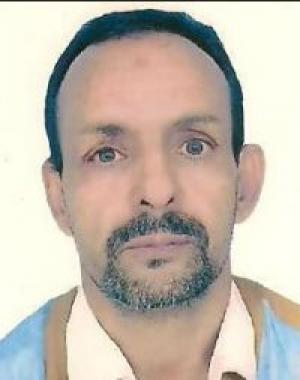
Mohamed Bani was born in El Aaiún, the capital of occupied Western Sahara, in 1969. Married and father of five children, Bani was one of the few Saharawi lucky enough to have found employment in a system which tends to prefer Moroccan settlers over Saharawis. Bani worked at the Ministry of Infrastructure.
Mr. Bani was not a part of the protest camp Gdeim Izik, but had a lot of relatives at the camp site. He visited his family on Sunday the 7th of November, and was stopped when trying to leave. On the 8th of November, when trying to leave, the police arrested him, accusing him of running over an officer.
He had visited his family on Sunday 7 November, the day before the camp would be burned to the ground. When he tried to leave in the evening, he was stopped by the Moroccan police and army, who had sealed off the camp site's surroundings. When Mohamed tried to leave again next morning, the police arrested him, accusing him of having run over officers.
Bani was subjected to physical and psychological torture in detention; after having suffered a severe head injury caused by excessive beating, he spent six days without any form of medical assistance, yet blindfolded, handcuffed, deprived of sleep and food, and he had urine poured on him. The wounds haven't healed and Mohamed continues to have problems resulting from the head injury to this very day.
Bani was on the 19th of July 2017 sentenced to life imprisonment by the Court of Appeal in Salé. The prosecutor provoked new witnesses during the proceedings conducted at the Court of Appeal, and witnesses that lacked the necessary credibility and without a legal identification process, described how Bani had attacked the military forces with his car. Bani on the other hand urged that he on the morning of the 8th of November was on his way back to the city to drive his children to school, and that his car had been hit by rocks, and that he lost consciousness when he was hit in the head with a rock. Bani urges that he did not attack the military forces with his car, and that he was overthrown when his car was hit with rocks. Bani was condemned for the forming of a criminal organization and for murder with intent to kill; the main evidence against him was the police records and witnesses that surfaced seven years after the incident.
Sidi Abdallah B'hah
Born: 1975
Sentenced to life by the Appeal Court in Salé in 2017
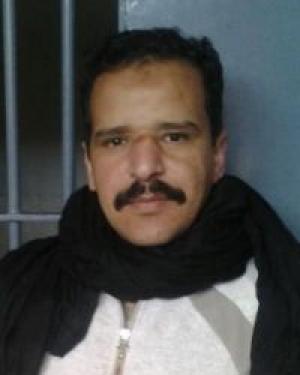
Sidi Abdallah B'hah was born in El Aaiún in 1975 - the year of the so-called Green March, when Morocco invaded its southern neighbour Western Sahara. Sidi still lives in El Aaiún, but his Spanish residence permit allows him to work in Spain as a seasonal worker.
On 19 November 2010, Sidi was arrested in the Linaach neighbourhood in El Aaiún. He says he was kept blindfolded, hand-cuffed and naked throughout interrogations in the police station, had urine poured on him and has been deprived of sleep as he was forced to stand up against a wall without moving.
Sidi Abdallah B'hah was sentenced to life in prison on July 19th in 2017; found guilty of the forming of a criminal organization and murder of public officials, with the intent to kill. Sidi declared that he was not present in the camp during the violent dismantlement of the peaceful protest camp. Sidi urges that the only reason for his imprisonment is his political opinions, and that the police records are falsified against him, and signed under torture. The main piece of evidence proving that Sidi even was in the Gdeim Izik camp on the 8th of November is the police records.
Brahim Ismaïli
Born: 1970
Sentenced to life by the Appeal Court in Salé in 2017
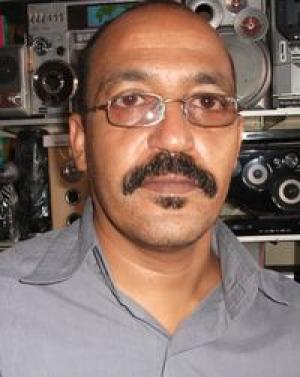
Brahim Ismaili was born in El Aaiún, where he grew up.
Brahim is the president of Center for Preservation of the collective Saharawi memory.
Brahim was arrested on 9 November 2010 in his house in the Zemla neighbourhood, in the presence of his wife Alfan and two of their four children. He was taken to the notorious black prison in El Aaiún. After 7 months, on 13 May 2011, Brahim was released together with other Saharawis. But just outside of the prison's gates, the police arrested him again and drove him to Salé prison, 1,200 kilometers up north in Morocco proper.
It is not the first time that Brahim Ismaili is in jail for his political views. In 1987, he was abducted and kept in a secret detention center for months.
On 19 July 2017 Brahim was sentenced to life in prison, and found guilty of both participation to murder and murdering of public officials in their line of duty, with the intent to kill. Brahim declared that the police records, that serves at the main piece of evidence against him, is falsified and signed under torture. Brahim declared that during all the interrogations, he was asked about his activism for self-determination and his trip to Algeria, and he urged that he was never asked any questions about the Gdeim Izik. He explained how he went to Algeria, in august 2010, with a delegation to attend an international conference about the right to self-determination, where Western Sahara served as model. Brahim further explained that he wasn’t in the camp during the attack, and that he had only visited the camp in his capacity as a human rights activist.
When he was asked about the alleged security committee inside the camp, Brahimi stated that “I have never seen any committees. The Gdeim Izik camp was surrounded by the military. It had only one entrance. We had to go through seven checkpoint to reach the camps, and show our identity. I have no information”.
Mohamed Embarek Lefkir
Born: 1978
Sentenced to 25 years by the Appeal Court in Salé in 2017.
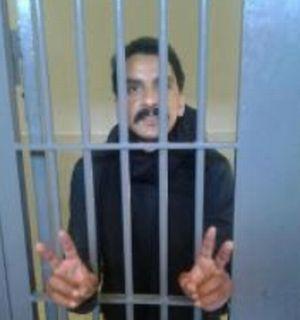
Mohamed Embarek Lefkir was born in 1975 in El Aaiún, Western Sahara. He is not married and doesn't have any children.
On 12 November 2010, Mohamed was arrested on the back of his participation in the Gdeim Izik camp. He was taken to the Black prison in El Aaiún, and was detained there until 17 June 2011 when he was temporarily released. But upon his release, the police arrested him and brought him to Salé prison, in Morocco proper, about 1200 kilometres north from El Aaiún.
Before pitching his tent in Gdeim Izik, Mohamed was part of a delegation of Saharawi human rights defenders who had been invited to Algiers by the Frente Polisario - the Saharawi liberation movement based in Algerian refugee camps.
Lefkir was sentenced to 25 years by the Court of Appeal on the 19th of July; and found guilty of participation to the murdering of public officials in their line of duty, with intent to kill. During the questioning of Lefkir on the 22nd of March, Lefkir declared, met with screams from the prosecution office, that; “I condemn the policy of hunger that the Morocco occupier is leading, and the policy of foreign companies which supports the Moroccan occupier forces.”
Lefkir declared that he on the early hours of the attack, had passed out due to the teargas, and that he was carried by his family for 4 kilometres, and later walked the remaining 8 kilometres to his home in El Aiun. The main evidence proving the actions of Lefkir is the police records which contains confessions that Lefkir declared is falsified and signed under torture and threats. When the judge asked Lefkir why he had signed the declarations in front of the investigative judge, Lefkir declared that the guards, with the judge present, stated that: “If you don’t sign, I will send you back, and you will be tortured more and worse than what you have already endured.” He explained how he had denied all the charges to the judge, and explained him that he was arrested because of his activism. Lefkir declared that the judge “asked if I could forgive him. He said that this is beyond me; I am only following orders.” Lefkir was condemned by the Court of Appeal on the basis of these police records, and in blatant absence of criminal evidence.
Babait Mohamed Khuna
Born: 1981
Sentenced to 25 years by the Appeal Court in Salé in 2017
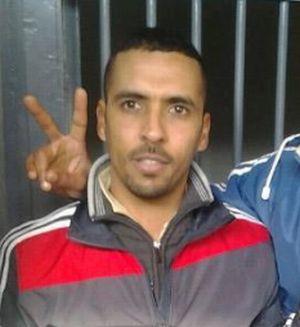
Babait Mohamed Khuna was born on 24 October 1981 in El Aaiún, Western Sahara. Babait still lives in El Aaiún, and is one of the few Saharawi that were lucky enough to find local employment: Babait worked for the local administration.
Nevertheless, he always felt a strong sense of solidarity with those less fortunate. After the violent dismantlement of the Gdeim Izik protest camp and the mass arrests of Saharawi citizens, Babait often took part in demonstrations that demanded the release of the prisoners. His boss at the local administration had tried to prevent him from attending those rallies, to the point of threatening resignation, but Babait continued to participate in the protest marches.
On 15 August 2011, Babait was arrested in El Aaiún by the Moroccan police.
On the 19th of July Babait was condemned to 25 years by the Court of Appeal, found guilty of participation to murder and the murder of public officials in their line of duty, with intent to kill. Babait declared to the court that he wasn’t at the camp during the events, and that he didn’t have any relationship to the camp, other than his mother which had a tent in the camp. The main piece of evidence against Babait is the police records. Babait declare that he was forced to sign the police records under threats, and that the police had left blank spaces on the pages and that the police have filled them in on a later opportunity.
Deich Eddaf
Born: 1978
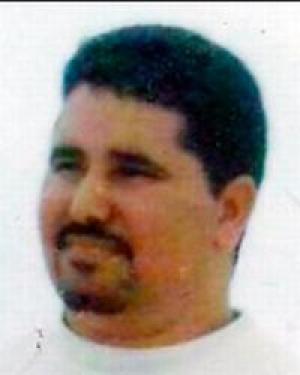
Originally sentenced to 25 years by Military Court in 2013, reduced to 6,5 years in 2017, released on 19th of July 2017
Deich Eddaf was born on 11 May 1978 in El Aaiún, Western Sahara. He is married and father of a little boy.
Deich was one of the thousands of Saharawis who had pitched their tents in Gdeim Izik. As a member of the Gdeim Izik Dialogue Committee, he participated in talks with the Moroccan authorities to reach improved social and economic conditions for the Saharawi people living under Moroccan occupation.
Deich was arrested at home by the Moroccan police on 3 December 2010. In the El Aaiún police station, he has been tortured, stripped of his clothes, urinated on and raped by use of a baton. He spent his time in detention naked, blindfolded, handcuffed and deprived of sleep, food and water. Deich has visible torture scars all over his body.
Deich Eddaf was sentenced to 6 and a 1⁄2 year by the Appeal Court in Salé in 2017. Released on the 19th of July 2017, and found guilty of violence against public officials in their line of duty.
Sidi Abderahman Zeyou
Born: 1974
Sentenced in 2017 to two years in prison, the time he had already served as he was released in 2013.
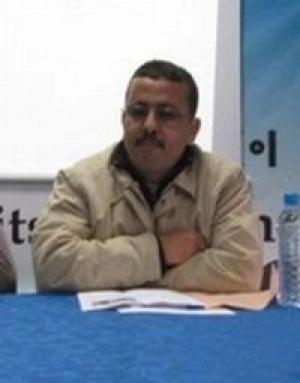
Sidi Abderahmane Zeyou is one of the two out of 25 Gdeim Izik prisoners that was convicted to the time spent in pre-trial detention, and was therefore released - allowing him to reunite with his daughter.
Sidi was born in El Aaiún, the capital of Western Sahara, in 1974 - one year before the Moroccan army invaded the territory. For a Saharawi living under Moroccan occupation, Sidi did remarkably well: he was able to get a degree in economy, and managed to find employment in the El Aaiún city hall.
Though he didn't participate in the Gdeim Izik camp, he visited the site often. Sidi is the president of comité des cadres sahraouis - a group which took care of supplying the camp with food and medicine.
On 21 November, after having finished his last day of work before heading off on holiday in Spain, Sidi was arrested in the airport of El Aaiún. The police had a warrant for him, issued by the public prosecutor of the Court of Appeal, on the back of Sidi's participation in Gdeim Izik. Sidi says he was tortured during detention, but was badly treated as he was kept blindfolded and hand-cuffed all the time.
Sidi Abderahmane Zeyou was convicted to the time he spent in pre-trial custody, and therefore released on 17 February 2013, when the military tribunal of Rabat convicted his friends to shockingly tough sentences. Zeyou was found guilty on violence against public officials in their line of duty by the Court of Appeal in Salé on the 19th of july, and condemned to two years.
Machdoufi Ettaki
Born: 1985
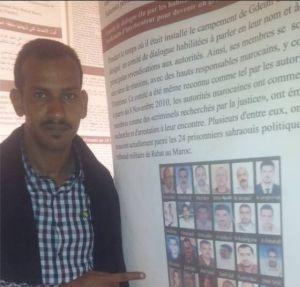
Sentenced in 2017 to two years in prison, the time he had already served as he was released in 2013.
Machdoufi Ettaki was born on 11 March 1985 in Tan Tan, a town in the south of Morocco with a large Saharawi population.
Ettaki currently lives in El Aaiún. He used to work as a soldier in the Moroccan army, but was expelled in 2009 for not following orders. After four months imprisonment he was expelled from the army. He has been unemployed since.
On 8 November 2010, Ettaki was arrested by the Moroccan police in the Gdeim Izik camp. He was brought to the police station, where he was tortured for six days while being blindfolded, handcuffed and stripped of his clothes. The police poured urine on him, and beat him so severely that he had to be transported to the hospital twice.
Ettaki was released on 17 February 2013, while the 23 others were condemned to extremely tough sentences. Ettaki was found guilty on violence against public officials in their line of duty by the Court of Appeal in Salé on the 19th of July, and condemned to two years.
Larabi El Bakay
Born: 1982
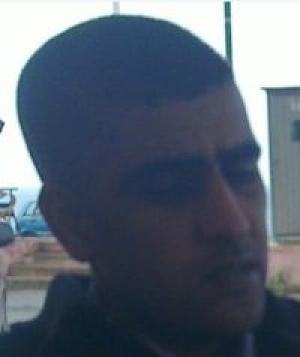
Sentenced to 4,5 years by the Appeal Court in Salé in 2017. Released on the 19th of July 2017. Originally sentenced to 25 years by Military Court in 2013.
Larabi El Bakay is an El Aaiún native; he was born there in 1982 and stayed there ever since. Larabi is married and father of two children. Larabi had a hard time making ends meet, and occasionally found a temporary job in the fishing sector in Dakhla.
Larabi and his family had put up their tent in Gdeim Izik, to denounce the miserable socio-economic conditions that many Saharawi face in their occupied homeland. Both Larabi and his wife participated in the Dialogue Committee, that held regular talks with the Moroccan authorities to negotiate more favourable living conditions for the Saharawis.
Almost 2 years after the Moroccan army had burned the camp to the ground, Larabi and his wife were arrested on 9 September 2012. His wife was released after 48 hours of interrogation.
El Bakay was sentenced to four and a half year by the Appeal Court in Salé in 2017, and found guilty of violence towards public officials in their line of duty. He was released on the 19th of July 2017.
Mohamed El Ayoubi
Born: 1956
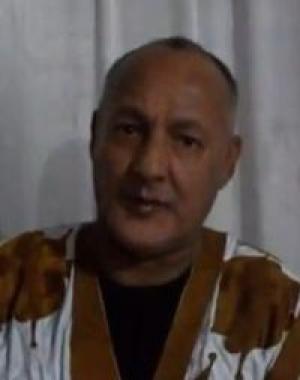
Sentenced to 20 years under provisional release due to his debilitated health condition by the Military Court in 2013. Mohamed died on 21 February 2018. His death is believed to be a result of the torture Mohamed suffered during the time spent in prison.
Mohamed El Ayubi was born on 18 November 1955 in El Aaiún - the capital of Western Sahara, which at the time was still a Spanish colony.
Mohamed never married and had no children. He suffered from a mental disorder which originated in early childhood.
Mohamed had been staying the Gdeim Izik camp, and was arrested there by the Moroccan army on 8 November 2010. He has gone through inhumane treatment while in detention; he was raped with a club, the police poured cold water and urine over him and beaten on the soles of his feet. All the while he was blindfolded, hand-cuffed and naked.
According to his sister Aisha and his lawyer, Mohamed had difficulty speaking as a result of the torture inflicted upon him. Several other injuries, such as a broken hand, were not attended to while he was detained.
Ayoubi had both kidney failure and heart problems. During the legal proceedings of the Gdeim Izik re-trial before a civilian court, he had difficulty walking and difficulty speaking, and with lifting his arms after the torture he was subjected to.
Due to his health problems, Mohamed was provisionally released on 13 December 2011. On 17 February 2013, however, the Moroccan military tribunal of Rabat sentenced him to 20 years in prison.
The case of Mohamed El Ayubi was separated from the group case in June 2017, and his case was scheduled to the 27th of September 2017 at the Court of Appeal in Salé. The court case of Auybi was on the 27th of September postponed until the 15th of November 2017.
Hassana Alia
Born: 1989
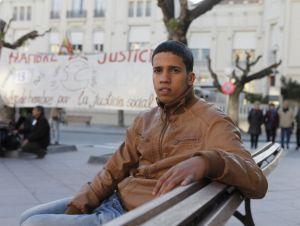
Sentenced to life in absentia by the Military Court in 2013. Hassana was granted political asylum in Spain. Hassana Alia was not summoned to the proceedings at the Court of Appeal in Salé in 2017.
"Being sentenced to life doesn't hurt me", Hassana says, "what really hurts me is that I won't be able to return to see my parents, brothers and sisters".
Hassana Alia, born in 1989, is the one that got away. Hassana heard the Military Court's verdict over the radio, in Basque Country, Spain, where he is living today. It doesn't bother him that the Moroccan authorities know of his whereabouts. "I am not going to hide", he says. "I was arrested in 2010 while we were being evicted from the Gdeim Izik camp. The Moroccan police released me twice, because they had no evidence against me. They gave me a visa to leave the country without any difficulty. Now they've condemned me for something they've previously said I didn't do."
Hassana now dedicates his life to raising awareness about his friends who are in jail, condemned to tough sentences on the same grounds as he was. He is militant, but his gaze starts to blur when asked if he would like to go back. Hassana takes a deep breath, and says "not now. I would love to see my parents, my brothers and sisters, my people, my country, but if I would end up in prison, then there would be nothing left for me to do. From the outside, I can tell the world about what has happened to my friends, and fight for them."
Life sentences confirmed for political prisoners
The Moroccan Court of Cassation yesterday confirmed the harsh sentences rendered against the so-called Gdeim Izik prisoners. The group took part in the mass protest on socio-economic marginalisation in Western Sahara in 2010.
South Africa stands up against the plunder of Western Sahara
The Government of South African today issued a strong statement of support for International Humanitarian Law in Western Sahara during a meeting in Geneva today.
Civilian court follows military court against Saharawi activists
Verdict comes after years of accusations that the trials were politically motivated, imprisoning activists who stood up against Morocco's social and economic deprivation of Saharawis.


